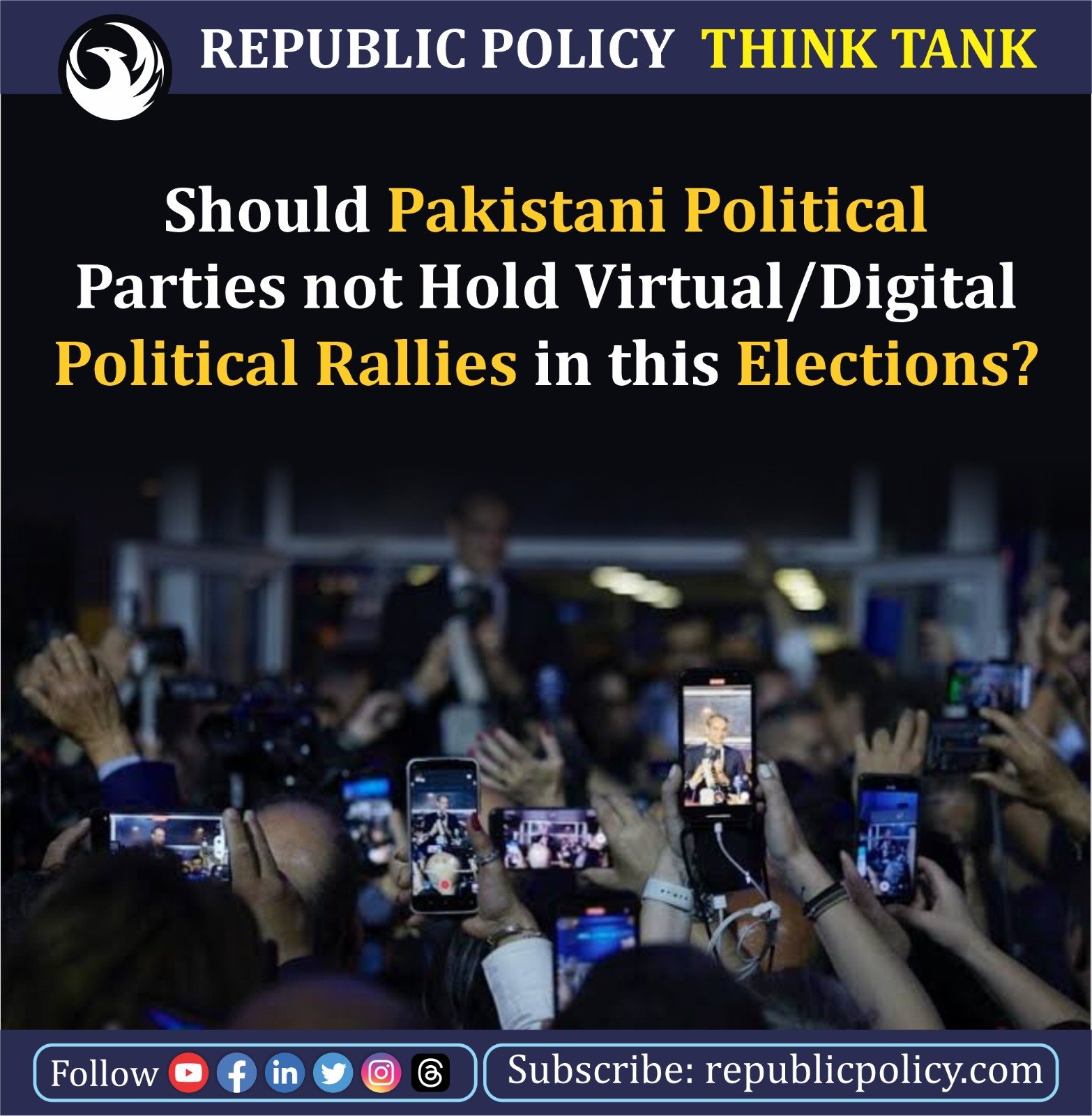Fahad Ansar
Virtual political rallies are online events that allow candidates and supporters to interact and communicate through various platforms, such as live-streaming, video conferencing, social media, etc. They are a way of engaging voters and mobilizing supporters without the need for physical gatherings, which can be costly, risky, or impractical in some situations.
With growing digital culture & economy, virtual or digital political rallies have a number of advantages & can boost the election campaign. These can reach a wider and more diverse audience, especially those who are unable or unwilling to attend in-person events due to distance, time, health, or other reasons. These can also reduce the costs and environmental impacts of traveling and organizing large-scale events, which can also free up resources for other campaign activities. Furthermore, these can leverage the power and popularity of digital media, such as music, podcasts, games, etc., to attract and entertain voters and create a sense of community and excitement among supporters. These can allow for more flexibility and creativity in the format and content of the events, such as featuring guest speakers, celebrities, experts, etc., or addressing specific issues or groups of voters. Furthermore, these can enable more interaction and feedback from the participants, such as through polls, questions, comments, donations, etc., which can also provide valuable data and insights for the campaign.
Please, subscribe the YouTube channel of republicpolicy.com
However, despite a lot of advantages, some of the challenges or limitations of virtual political rallies include that they may not generate the same level of enthusiasm, emotion, or loyalty as in-person events, which can create a stronger bond between the candidates and the voters. They may also face technical difficulties or glitches that can disrupt or diminish the quality and effectiveness of the events, such as poor internet connection, hacking, trolling, etc. Furthermore, they may not reach or appeal to some segments of the electorate, such as those who are not familiar or comfortable with online platforms, or those who prefer face-to-face communication. They may also encounter legal or ethical issues regarding the use or misuse of personal data, privacy rights, intellectual property rights, campaign finance laws, etc. In Pakistan, virtual political rallies are not very common or popular yet.
However, some political parties have experimented with them in recent years. For example: In 2018, Pakistan Tehreek-e-Insaf (PTI) held a virtual rally on Facebook Live to mark its 22nd foundation day. The event featured speeches by party leaders and supporters from different cities and countries. In 2019, Pakistan Peoples Party (PPP) organized a digital jalsa on Twitter to commemorate the 12th death anniversary of former Prime Minister Benazir Bhutto. The event used the hashtag #SalaamBenazir to pay tribute to her legacy and achievements. In 2020, Pakistan Muslim League-Nawaz (PML-N) conducted a virtual rally on Zoom to protest against the government’s handling of the coronavirus pandemic. The event was attended by party workers and leaders from across the country.
Please, subscribe the republicpolicy.com website
If political parties in Pakistan want to employ virtual political rallies more effectively in their election campaigns, they may need to consider some of the following factors which are critical in disseminating political narratives. The level of internet access and digital literacy among their target voters needs to be assessed properly. The type and quality of online platforms and tools that suit their needs and goals needs to be employed. Furthermore, the content and format of their online events that can engage and persuade their audience should be direct, precise and simple. The legal and ethical implications of their online activities that can affect their reputation and credibility must be scrutinized. Lastly, it is important to have a winning combination between digital & on-field election campaign in order to disseminate and spread the party narratives and manifestos.
Please subscribe the republicpolicy.com magazines
















